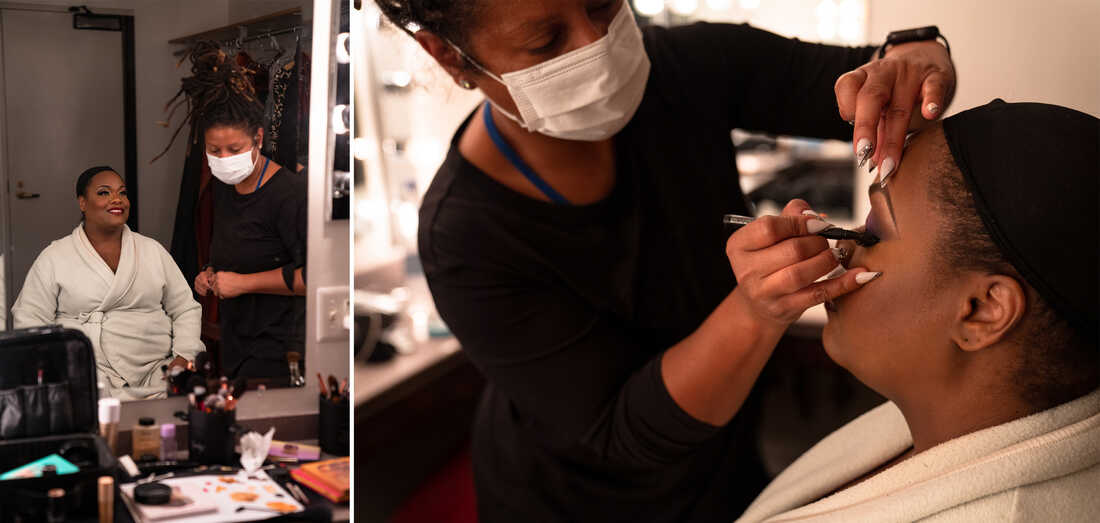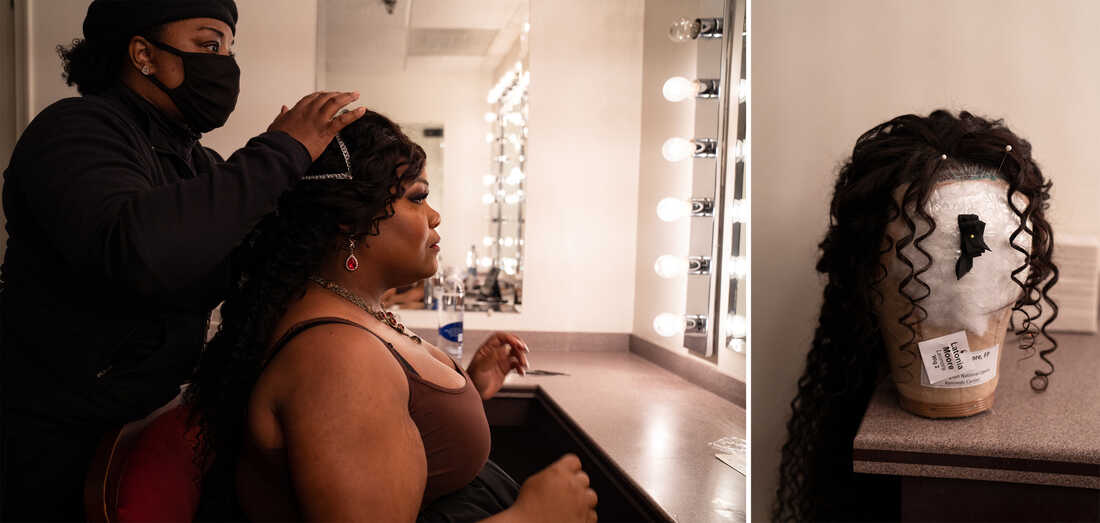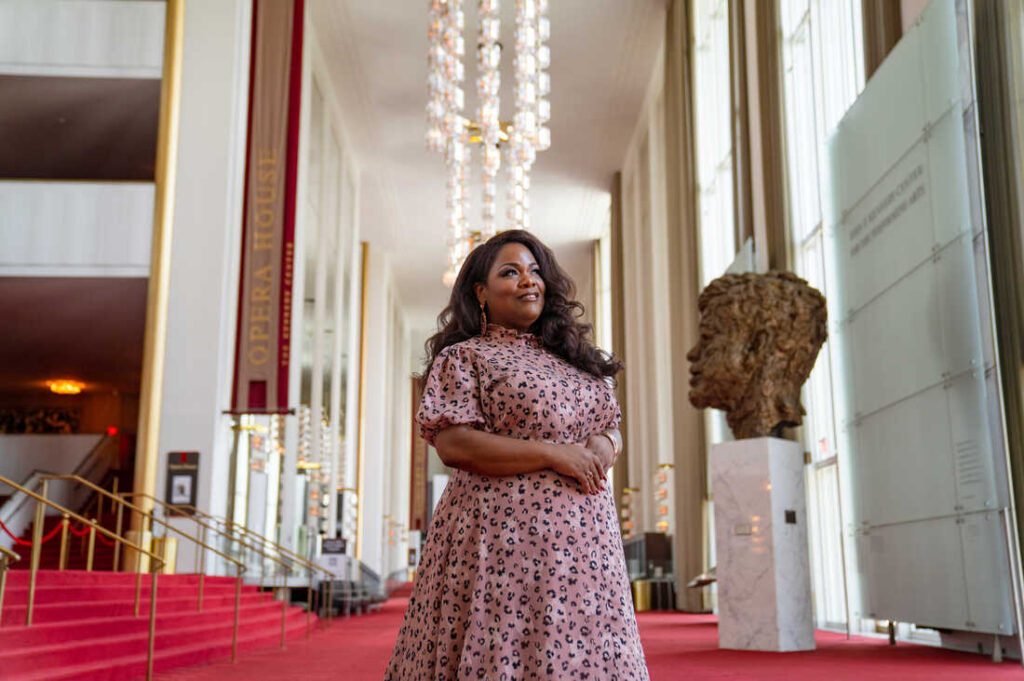Latonia Moore at the Kennedy Center on Oct. 18, 2022.
Catie Dull/NPR
hide caption
toggle caption
Catie Dull/NPR

Latonia Moore at the Kennedy Center on Oct. 18, 2022.
Catie Dull/NPR
Latonia Moore remembers clearly the moment she fell in love with opera. She had entered the University of North Texas as a jazz performance major, but a classical music study requirement led her to sing in the chorus for Ruggero Leoncavallo’s Pagliacci (“Clowns”).
“I was just in the chorus, lowly little chorus girl, but I fell in love with being someone else,” Moore said in an interview with NPR’s Leila Fadel. “Like me, Latonia from Houston, Texas, could be an Italian villager watching this comedia dell’arte troop come through town. I felt just so alive and at home.” She compares it to being a “chameleon.”
Moore didn’t grow up on a steady diet of opera. In fact, “my family’s not into opera. That’s not their thing.” But other types of music were a big part of her childhood, during which she sang gospel music — including in her pastor grandfather’s own church — R&B and jazz. Her older sister Yolanda introduced her to art songs, and she joined the choir.
Today, Moore has graced opera stages around the world, with the title role in Verdi’s Aida being her most performed and recognized one. But it’s also one that comes with its fair share of controversy, since non-Black singers often perform in blackface or have their bodies painted to portray the enslaved Ethiopian princess — long after such practices have been shunned in other performing arts. But Moore said the tradition doesn’t bother her “so long as they haven’t gone “over the line for most people.”

Latonia Moore at the Kennedy Center on Oct. 18, 2022.
Catie Dull/NPR
hide caption
toggle caption
Catie Dull/NPR

WNO’s Il “Trovatore”
Scott Suchman
hide caption
toggle caption
Scott Suchman

Latonia Moore gets ready for the dress rehearsal of Il Trovatore on Oct. 19, 2022.
Catie Dull/NPR
hide caption
toggle caption
Catie Dull/NPR

Latonia Moore gets ready for the dress rehearsal of Il Trovatore on Oct. 19, 2022.
Catie Dull/NPR
hide caption
toggle caption
Catie Dull/NPR

Latonia Moore gets ready for the dress rehearsal of Il Trovatore on Oct. 19, 2022. (Catie Dull/NPR)
Catie Dull/NPR
hide caption
toggle caption
Catie Dull/NPR

Latonia Moore gets ready for the dress rehearsal of Il Trovatore on Oct. 19, 2022.
Catie Dull/NPR
hide caption
toggle caption
Catie Dull/NPR

Latonia Moore gets ready for the dress rehearsal of Il Trovatore on Oct. 19, 2022.
Catie Dull/NPR
hide caption
toggle caption
Catie Dull/NPR

Latonia Moore gets ready for the dress rehearsal of Il Trovatore on Oct. 19, 2022.
Catie Dull/NPR
hide caption
toggle caption
Catie Dull/NPR
The audio version of this story was produced by Marc Rivers. Morning Edition host Leila Fadel conducted the interview.

